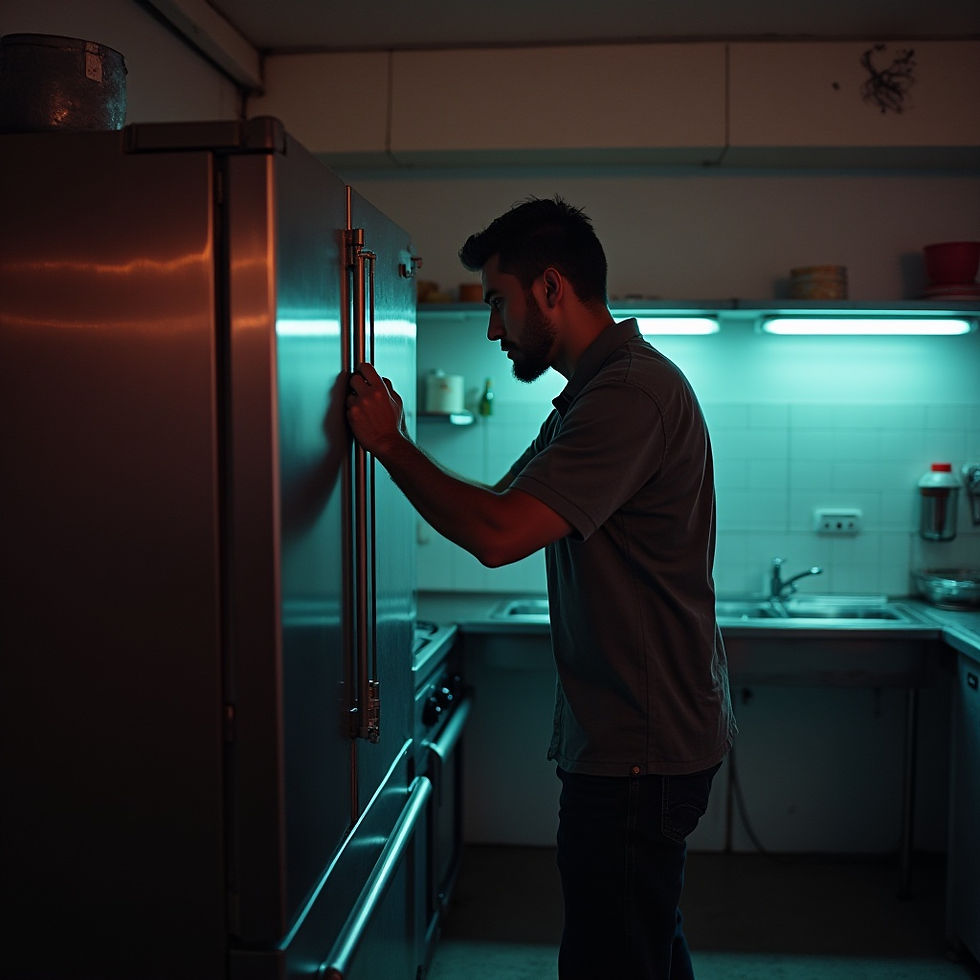Signs Commercial Kitchen Equipment Needs Service
- smita34
- Aug 21, 2024
- 3 min read
Updated: Nov 20, 2024

In the fast-paced environment of a commercial kitchen, equipment reliability is critical. Even a minor malfunction can have major impacts on operations affecting everything from timing and food quality to reputation and revenue. Recognizing when commercial equipment needs service before it fails could very well be the difference between navigating a kitchen disaster or simply managing repairs.
Fortunately, it’s rare for a piece of commercial equipment like a range or refrigerator will suddenly fail. More likely than not, there will be warning signs that something is amiss, which provides an opportunity to schedule a service appointment before there’s an emergency.
Here are seven early warning signs commercial equipment requires service that should never be ignored.
Unusual Noises
Commercial kitchen equipment is designed to operate efficiently and make minimal noise. Any type of unusual sound—including hums, grinding noise, or clattering—generally signals that something is amiss. While it can be difficult to pinpoint the source based on sound alone, these noises could often indicate loose components, damaged motors, or worn-out belts.
Ignoring early warning signs won’t make the problem go away. Instead, it will likely lead to more severe damage, resulting in costly repairs or potentially even the need for complete replacement.
Inconsistent Temperatures
In a busy kitchen, it’s crucial that equipment like ovens, refrigerators, and freezers, maintain a consistent temperature. Fluctuating temperature is not only a danger to food safety, but it can also make it difficult to maintain consistent food quality. A refrigerator that doesn't stay cold enough could indicate an issue with its thermostat or cooling system while inconsistent oven heating might signal an issue with heating elements.
Don’t wait for the cost of food waste or refires to start eating into profits or impacting the business's reputation. If an appliance isn’t reliably maintaining its temperature schedule professional commercial equipment service as soon as possible.
Increased Energy Consumption
A sudden spike in energy bills might be more than just a seasonal change; it could be a sign kitchen equipment is working harder than it should. Older or malfunctioning equipment tends to consume more energy as it struggles to perform efficiently. This not only increases operational costs but also puts additional strain on the equipment, leading to faster wear and tear. Monitoring energy usage for unusual increases can help identify when a commercial equipment service is necessary.
Repeated Breakdowns
Equipment that is frequently breaking down is a clear indication that something is wrong. While occasional commercial equipment repairs are to be expected, repeated issues with the same appliance suggest underlying problems that aren't being adequately addressed. Frequent breakdowns not only disrupt kitchen operations but also increase the likelihood of complete equipment failure. Regular maintenance and timely service can prevent these recurring issues and extend the lifespan of your equipment.
Visible Wear and Tear
Sometimes, the signs that something is potentially wrong with a piece of kitchen equipment are plain to see. Wear and tear are inevitable in any commercial kitchen. However, visible damage such as rust, cracks, or worn-out seals shouldn't be ignored. These signs often indicate that the equipment is reaching the end of its service life. In some cases, commercial equipment service may be able to extend the life of the appliance, at least for long enough to secure a replacement.
Strange Odours
Unusual or unpleasant odours emanating from kitchen equipment are another red flag. For example, a burnt smell coming from an oven could indicate electrical issues, while a sour odour from a refrigerator might suggest that the cooling system is failing. In some cases, these odours can also indicate food debris or grease buildup that hasn't been adequately cleaned, which can cause equipment to overheat or malfunction. Regular cleaning and commercial equipment inspection can help identify the source of these odours and determine whether professional service is needed.







